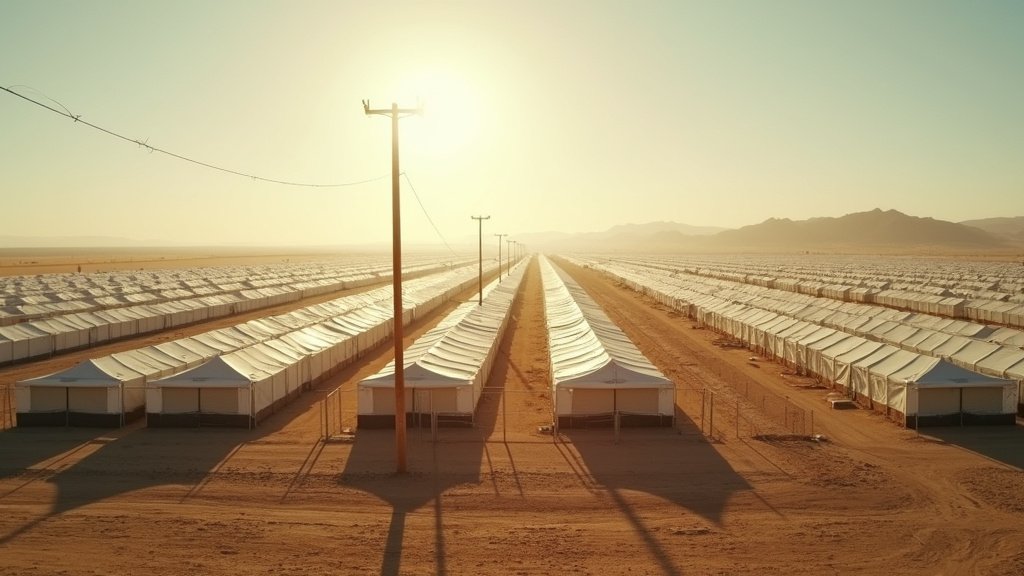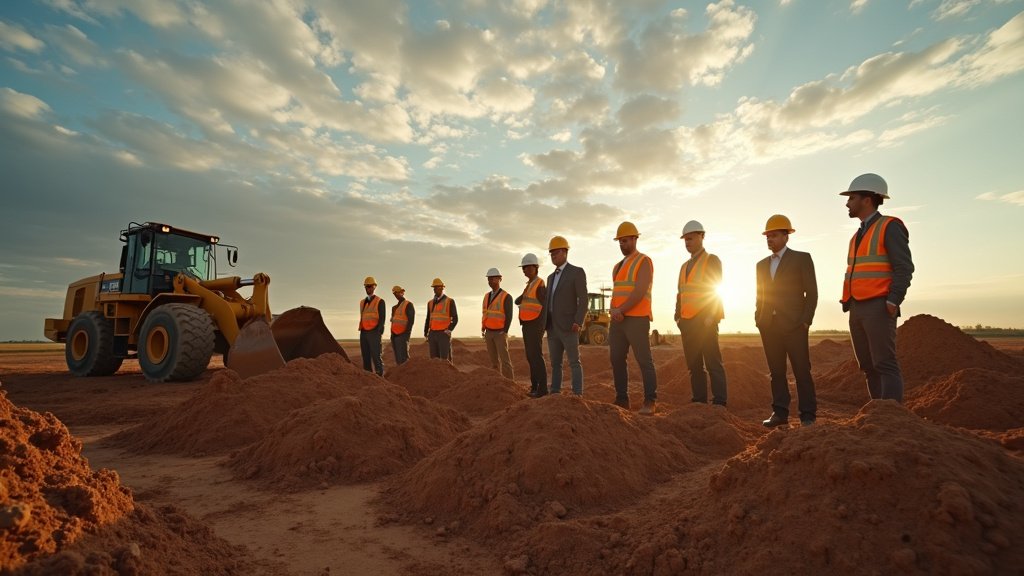EL PASO, Texas – A sprawling new chapter in U.S. immigration policy is unfolding in West Texas, as Fort Bliss, a vast U.S. Army base, officially begins operating the nation’s largest federal migrant detention center. The move, spearheaded by the Trump administration, marks a significant escalation in efforts to expand detention capacity and accelerate deportations, immediately generating considerable buzz and drawing sharp criticism from human rights advocates.
A Massive Undertaking in the Desert
The Department of Defense (DOD) awarded a staggering $1.26 billion contract for the construction and operation of the Fort Bliss facility, which is designed as a tent camp. Located near El Paso and spanning land across both Texas and New Mexico, the center is set to house an initial 1,000 detainees, rapidly expanding to a capacity of 5,000 beds. Some internal documents suggest an eventual capacity of up to 10,000, positioning it as a “central hub for deportation operations.” The facility began receiving detainees as early as August 1, 2025, with its official operational launch on August 17.
The Immigrations and Customs Enforcement (ICE), operating under the Department of Homeland Security (DHS), will manage the site, which Pentagon Press Secretary Kingsley Wilson described as crucial for the “deportation of illegal aliens.”
Controversial Contractor and Procedural Hurdles
Central to the Fort Bliss project is the Virginia-based contractor, Acquisition Logistics LLC, which secured the lucrative $1.26 billion contract. The choice of Acquisition Logistics has raised eyebrows, given its reported lack of prior experience in managing large-scale detention centers or federal contracts of this magnitude. The company, founded by retired U.S. Navy flight officer Ken Wagner, typically specializes in supply chain management and technical services for the military, with its listed headquarters operating out of a residential home.
The project’s path to fruition has been marred by delays and controversies. Earlier attempts to award the contract to other companies, including Deployed Resources, were either rescinded or pulled. Furthermore, a workplace death during the construction phase has prompted investigations by the Occupational Safety and Health Administration and the U.S. Army Criminal Investigation Division.
Humanitarian Concerns and Outcry from Advocates
The construction of a tent facility in West Texas has ignited significant humanitarian concerns, particularly due to the region’s extreme desert heat, where 104°F days can feel like 120°F heat traps. Immigrant rights activists warn that such conditions could jeopardize the health and safety of detainees. The American Civil Liberties Union (ACLU) and groups like the Border Network for Human Rights (BNHR) have voiced strong objections, labeling the initiative as “cruel” and a “shameful detention legacy.”
Concerns are amplified by reports from similar tent facilities, such as the “Alligator Alcatraz” in the Florida Everglades, where detainees have described being exposed to the elements, held in cages with constant lighting, and subjected to inhumane practices. Advocates also point to Fort Bliss’s own controversial past; while it has previously housed migrant children and Afghan refugees, its use for unaccompanied minors from 2021 to 2023 was associated with allegations of abuse and a lack of transparency.
A Broader Strategy of Mass Deportation
The Fort Bliss development is part of a wider, aggressive strategy by the Trump administration to significantly expand its immigration enforcement capabilities and expedite mass deportations. The administration is exploring the use of multiple military bases nationwide for detention purposes, including sites in New Jersey, New York, Utah, and Indiana.
This aggressive push is further bolstered by recent congressional action, with a budget reconciliation bill funneling $170 billion towards “turbocharge[d] deportations and detention.” The current news surrounding Fort Bliss signals a critical moment in the ongoing national debate over immigration policy and the treatment of non-citizens in the United States. The facility, now operational, will remain a focal point for scrutiny and advocacy as this large-scale detention experiment unfolds in Texas.






